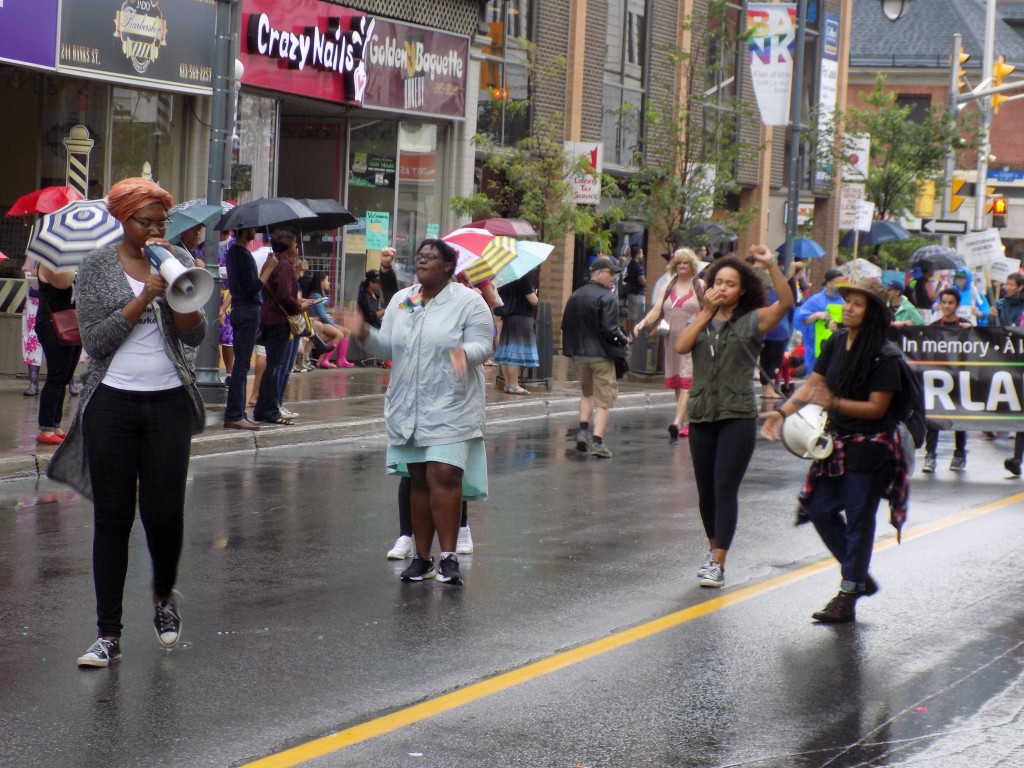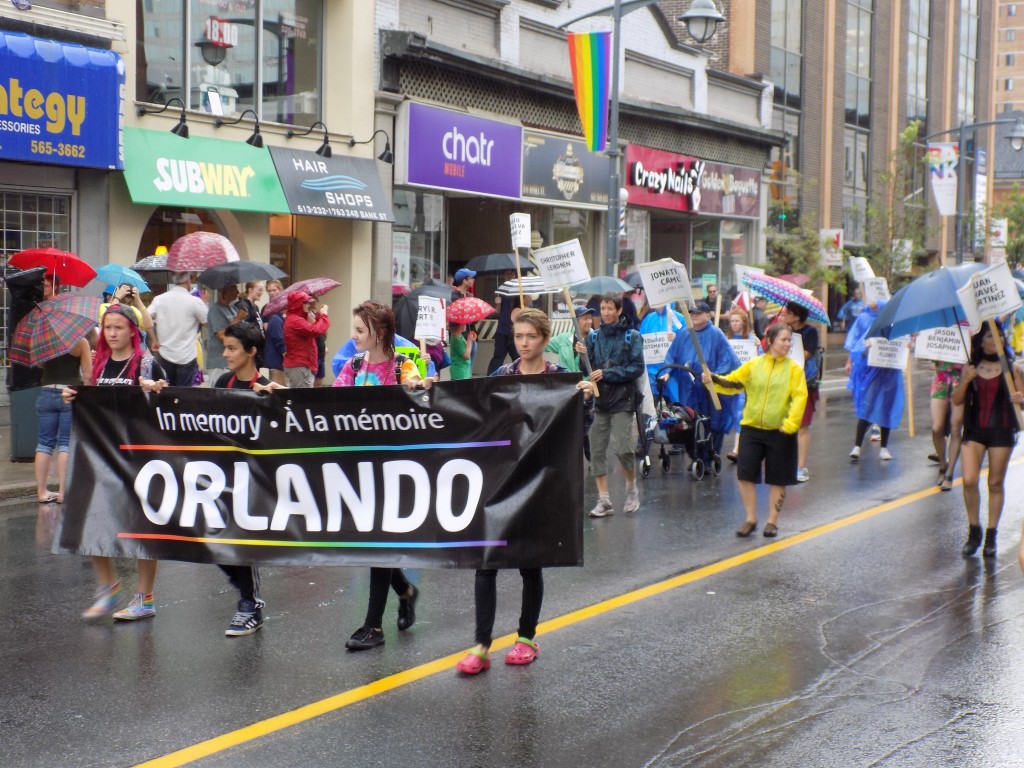Ottawa’s Capital Pride parade
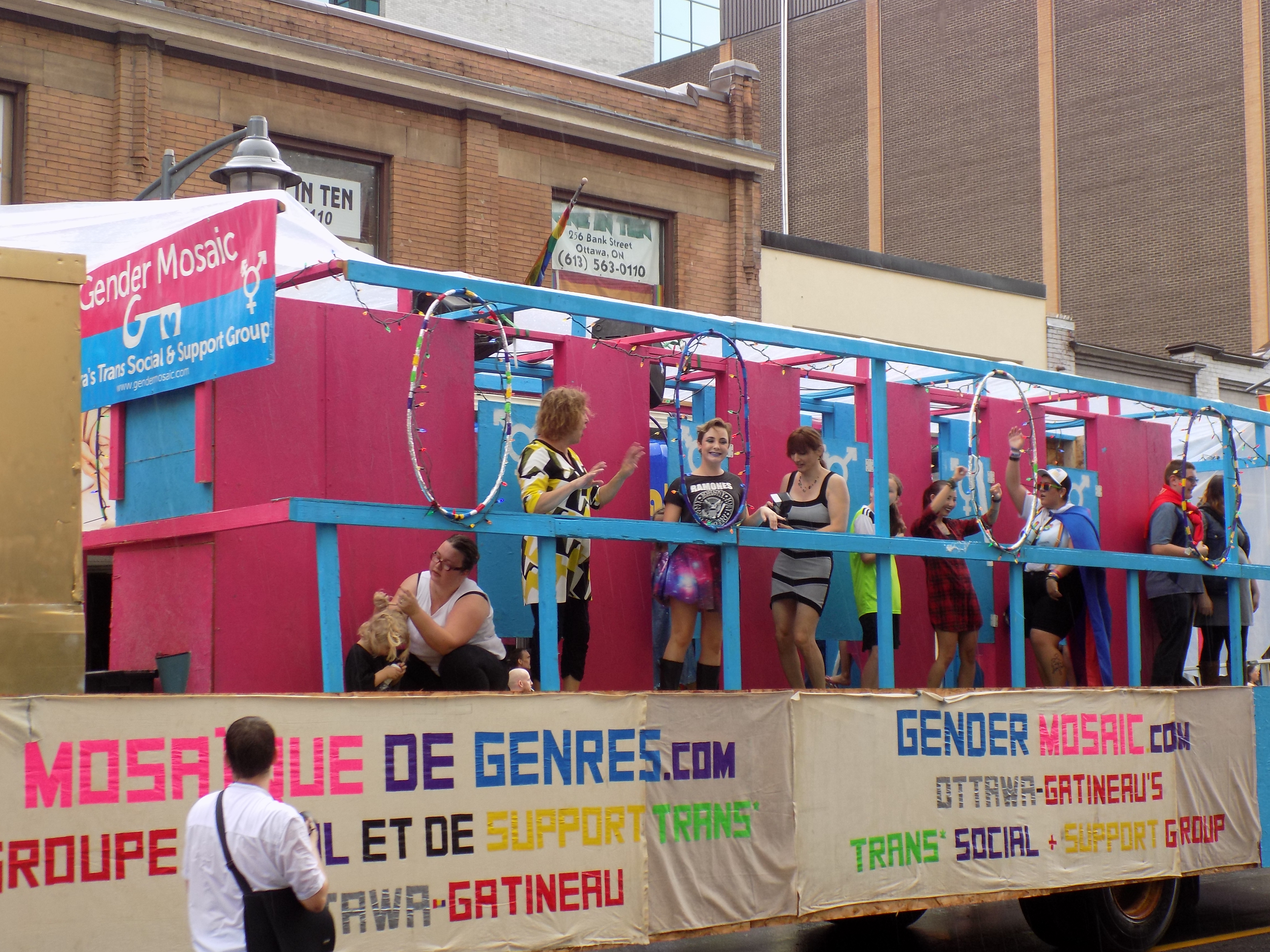
Making the case for transgender-inclusive restrooms. One of the floats in the Ottawa Pride Parade. Photo by James Morgan
Capital Pride—Ottawa’s week-long LGBTQ celebration wrapped up this past weekend with the Capital Pride Parade on Sunday afternoon. It was a colorful procession focused on acceptance, inclusion, and diversity. The parade route followed Kent, Laurier, and Bank Streets through the neighborhood that has become known as the LGBTQ Village in recent years. The often heavy rain didn’t dampen the mood at all, with hundreds participating and thousands watching. Parade watchers I talked with had a real sense of importance as the common reason for going to the Pride parade. “It’s important to support everybody, especially with what’s been happening in the world,” said Crystal, referring to the tragic mass shooting in Orlando on June 12 that killed 49 people at an LGBTQ nightclub. Ben said his reason for going to the parade was because “It’s important to show support for our community.” I had never been to an event like this before. I didn’t really know what to expect just based on years of seeing coverage in the commercial media or hearing often polarizing opinions. I’ll let these photos tell the tale.
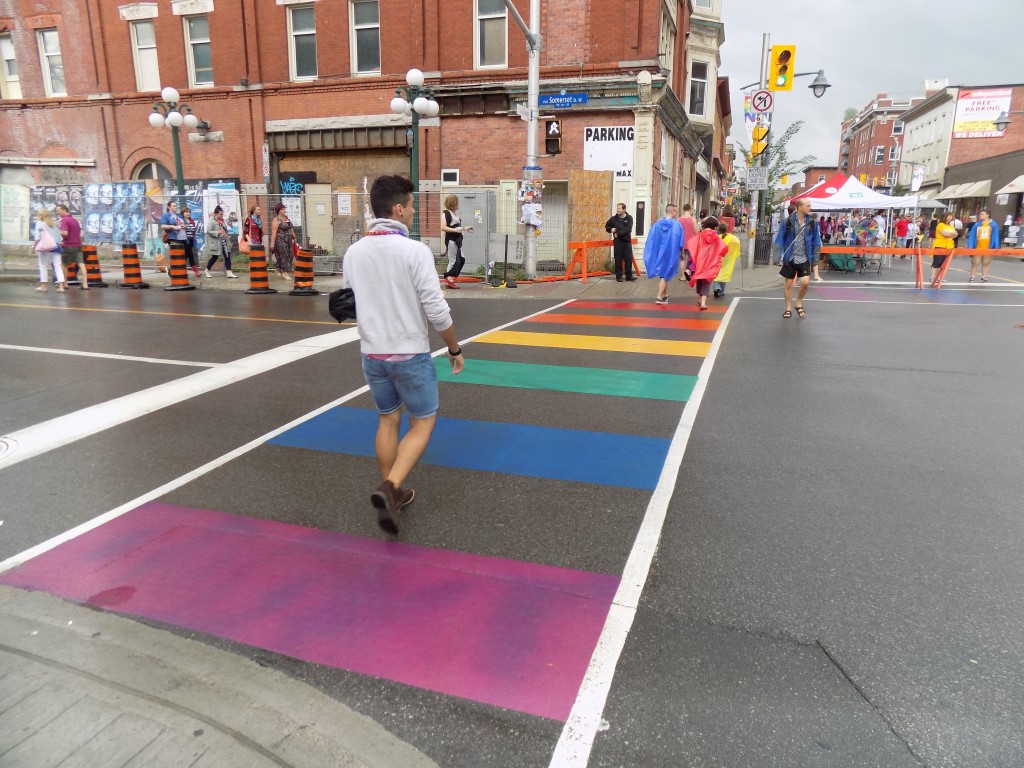
An inclusive crossing: Bank and Somerset Streets is the centre of Ottawa’s LGBTQ Village. The crosswalks are even rainbow flag-themed. Part of Bank Street, at right, was closed for a display area. Photo by James Morgan
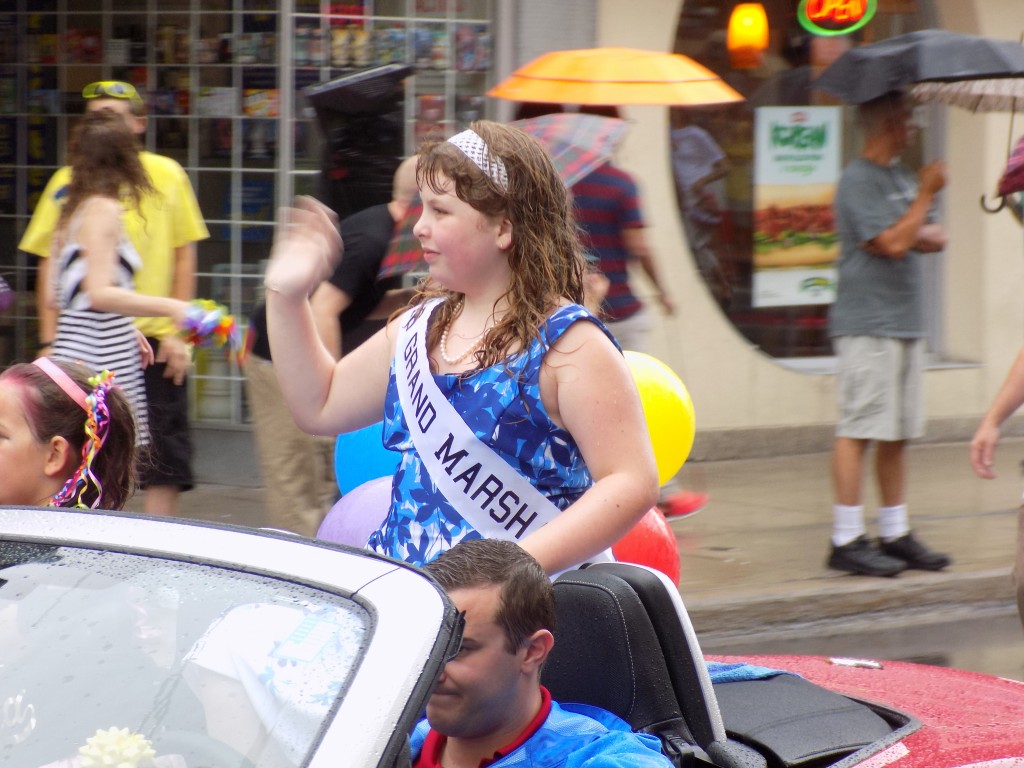
Charlie Lowthian-Rickert of suburban Stittsville was one of the Grand Marshals of the Capital Pride parade. The 10 year-old advocate for transgender rights was born as a boy and began identifying as a girl at age three. Lowthian-Rickert was invited to Parliament back in May when the Minister of Justice announced plans to legally protect the civil rights of transgender Canadians. Photo by James Morgan
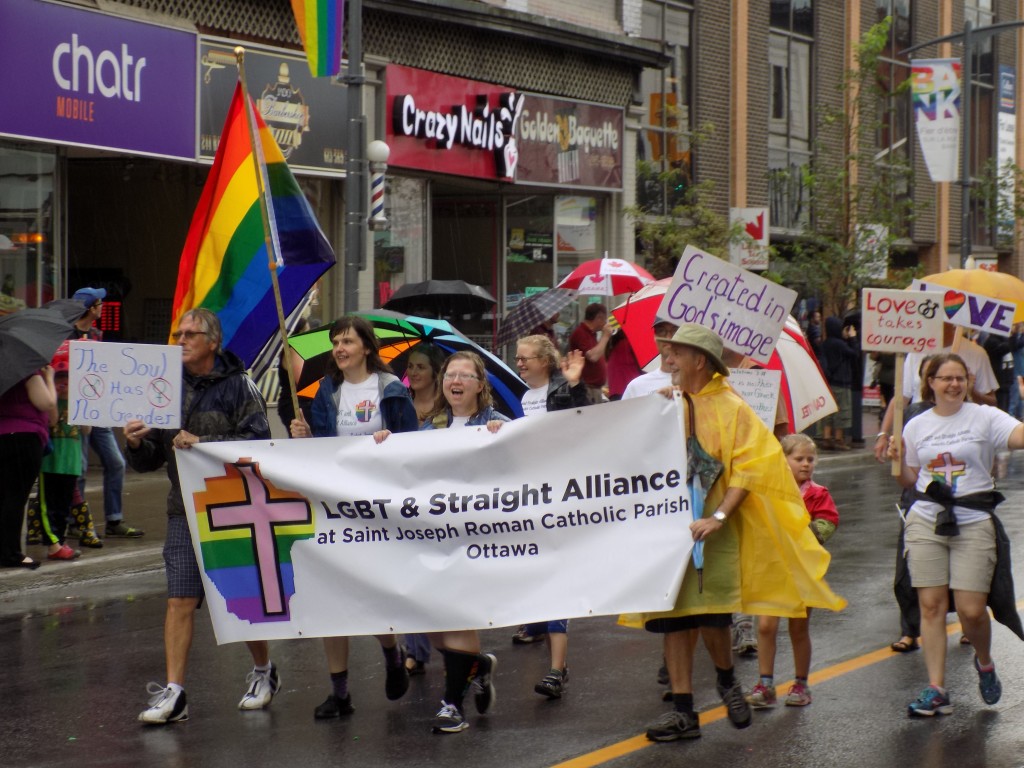
St. Joseph’s Roman Catholic Parish is known in Ottawa for its inclusive approach. Anglican (Episcopal), United, Jewish, and Unitarian congregations also took part in the parade. Photo by James Morgan
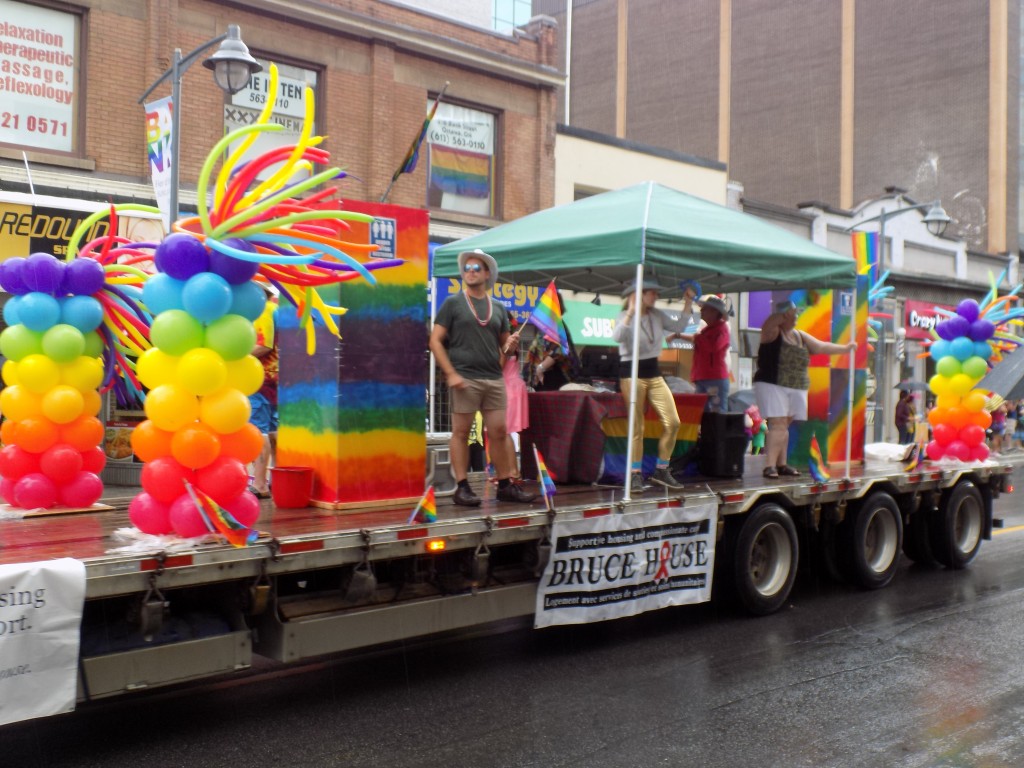
Bruce House provides housing and support services for Ottawa residents with HIV and AIDS. Photo by James Morgan
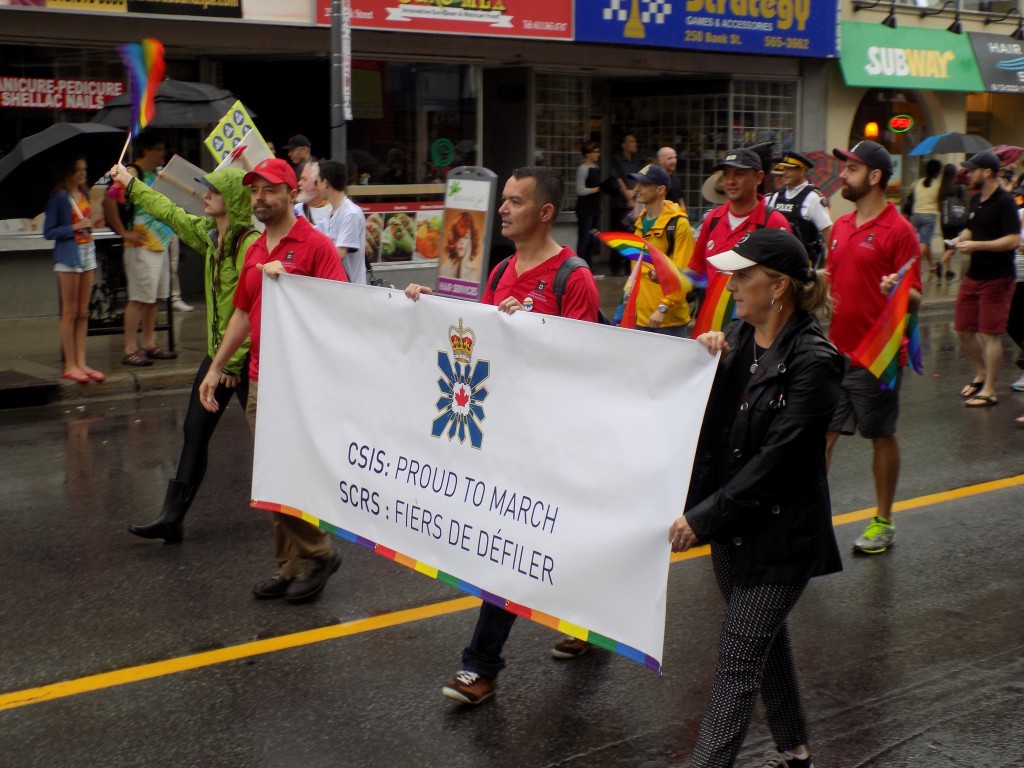
Secret agents: The Canadian Security Intelligence Service (CSIS), similiar to though smaller than the CIA, was one of many government agencies, along with the military, that took part in the parade. Things have changed incredibly since the Cold War era when LGBTQ people were fired from the civil service and seen as a risk to national security. Photo by James Morgan
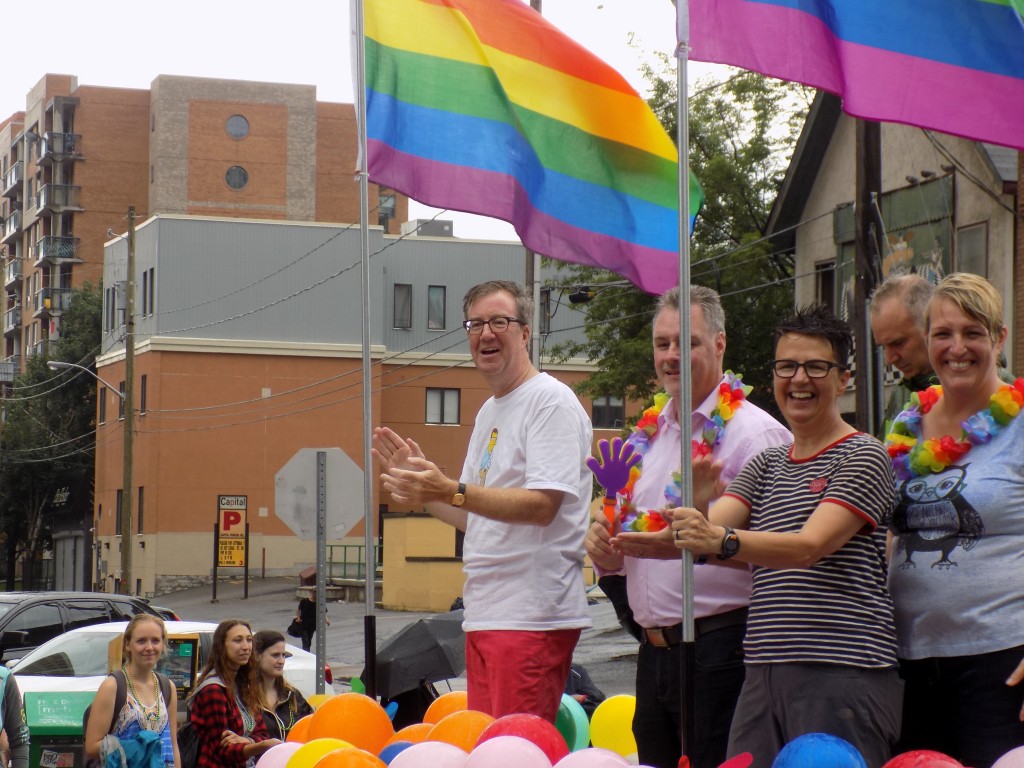
Ottawa Mayor Jim Watson, (standing under the Pride flag), with members of city council and staff. Photo by James Morgan
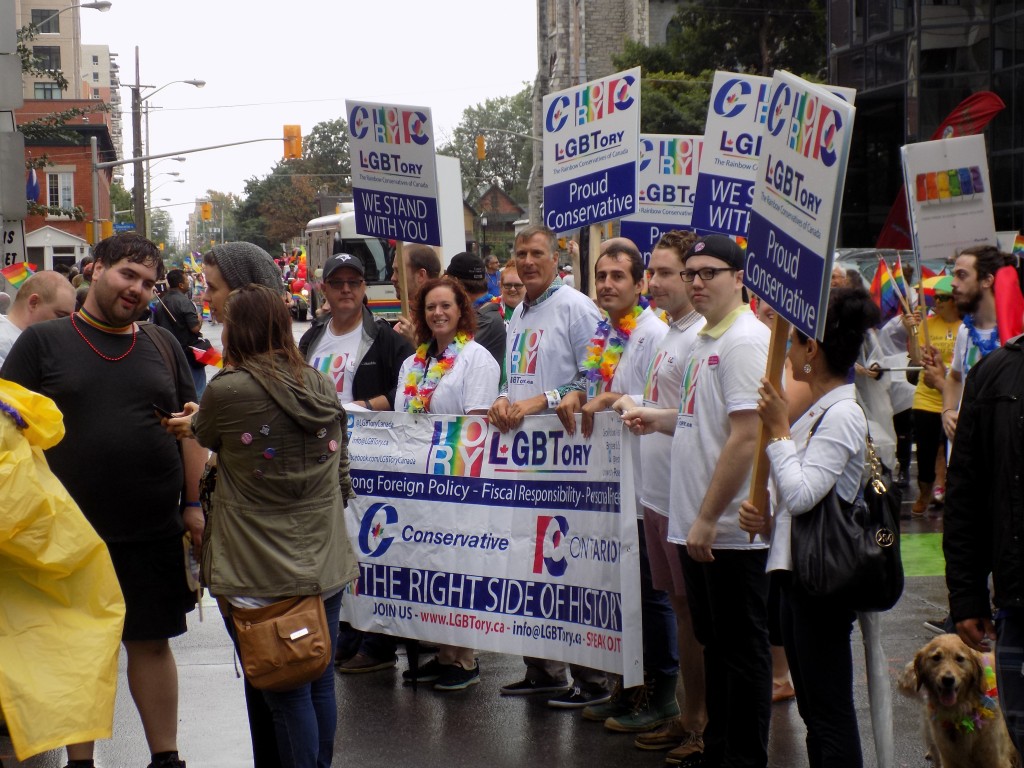
There’s no escaping politics in Ottawa. All of Canada’s major political parties took part in the Pride parade. Prime Minister Justin Trudeau walked in Pride parades in other cities this summer, but could not make it to Ottawa’s. This is the Conservative “LGBTory” contingent. Behind the banner, second from left is Lisa MacLeod, an Ottawa member of the Ontario legislature. Third from left is federal Member of Parliament Maxime Bernier. Photo by James Morgan
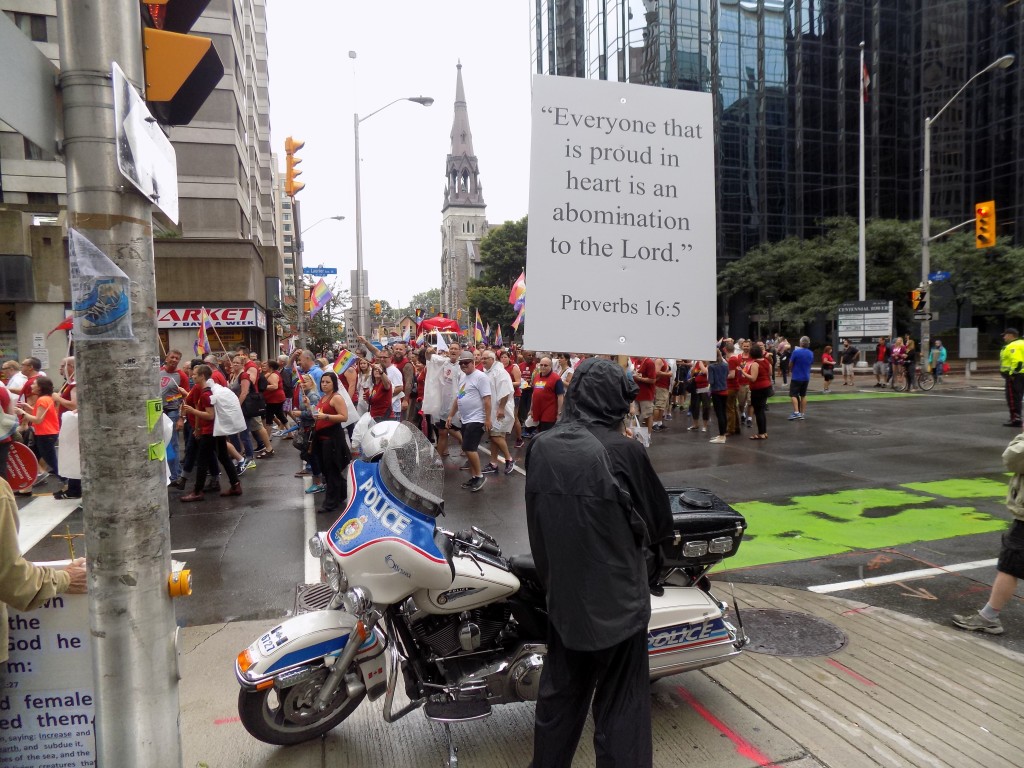
I only saw two protesters opposing the Pride parade. One of them stands at the corner of Kent Street and Laurier Ave. while the parade passes by. In this photo, a contrast of traditions and opinions in Canadian society: a protester, a Pride parade, and St. Patrick’s Basilica in the background. Photo by James Morgan.





